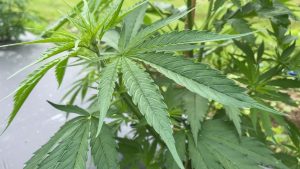If you are someone who stays updated with the latest trends in cannabis, you must have heard about THCA flower. THCA, or Tetrahydrocannabinolic Acid, is a naturally occurring cannabinoid found in the raw cannabis plant. Unlike THC, which is psychoactive, THCA does not cause any psychoactive effects. The reason behind this is that THCA needs to be heated at high temperatures to be converted into THC. THCA is used by many people, both medicinally and recreationally, to gain its incredible benefits. In this article, we will talk about the comprehensive guide to THCA flower, including its benefits and uses.
THCA, or tetrahydrocannabinolic acid, is a cannabinoid that is found in marijuana in its raw form. Unlike THC, which is the psychoactive compound in marijuana that gets people high, THCA has no psychoactive effects, until it is heated or decarboxylated. THCA flower has various health benefits and uses, which we will explore in this comprehensive guide.
1. What is THCA Flower?
THCA flower is made from the raw cannabis plant that has not been heated or decarboxylated. THCA stands for Tetrahydrocannabinolic Acid, which is a non-psychoactive compound found in the cannabis plant. When raw cannabis is exposed to heat or light, THCA converts to THC, which is the compound that causes psychoactive effects. To enjoy the benefits of THCA, one should consume it raw by juicing, making tinctures, or using it in various recipes.
2. Benefits of THCA Flower
THCA flower is known for its numerous medicinal benefits, including anti-inflammatory, antiemetic, and antiproliferative properties. It has been found that THCA can help reduce inflammation in the body, making it helpful for people suffering from conditions like arthritis and Crohn’s disease. THCA also has antiemetic properties, which means it helps reduce nausea and vomiting. Patients undergoing chemotherapy often use THCA to overcome the side effects of the treatment. Additionally, studies show that THCA has antiproliferative properties, which means it can help slow down the growth of cancer cells.
3. Uses of THCA Flower
THCA flower can be used in various ways, such as juicing, making tinctures, or adding it to recipes. Juicing raw cannabis, including THCA flower, is one of the most effective ways to consume it. Juicing can help you take in more nutrients that are not available when consuming cannabis through smoking or using THC products. THCA tinctures can also be used to help reduce inflammation and pain.
THCA flower can also be used in cooking and baking. However, because THCA is a non-psychoactive compound, the effects will not be the same as using THC. If you are looking to make edibles that have psychoactive effects, you should use THC products instead of THCA. THCA-infused foods can be a great way to consume the compound in a more enjoyable way, especially if you don’t like the taste of raw cannabis.
(a) Pain Relief
THCA flower is known for its pain-relieving properties. The cannabinoids found in THCA bind to the body’s receptors, which can help reduce inflammation and relieve pain. This makes it a popular choice for individuals who suffer from chronic pain conditions like arthritis, fibromyalgia, and multiple sclerosis.
(b) Anti-Inflammatory
THCA flower has anti-inflammatory properties that can help reduce inflammation in the body. Inflammation is a common underlying cause of many chronic diseases, including arthritis, heart disease, and Alzheimer’s disease. By reducing inflammation, THCA can help alleviate symptoms and prevent the progression of these diseases.
(c) Neuroprotective
THCA flower has been shown to have neuroprotective properties, which means it can help protect the brain against damage and inflammation. This makes THCA a promising treatment for conditions like Alzheimer’s disease, Parkinson’s disease, and multiple sclerosis.
(d) Anti-Nausea
THCA flower has been shown to have anti-nausea properties, which can help alleviate symptoms of nausea and vomiting associated with chemotherapy, motion sickness, and other conditions.
(e) Anxiety and Depression
THCA flower has been found to have anxiolytic and antidepressant effects. This means it can help reduce symptoms of anxiety and depression, making it a potential treatment option for individuals with these conditions.
(f) Anti-Tumor
THCA has been found to have anti-tumor properties, which means it can help prevent the growth of cancer cells. While more research is needed in this area, early studies suggest that THCA could be a promising treatment for various types of cancer.
4. How to Choose the Right THCA Flower
When choosing THCA flower, it is important to look for high-quality, organic cannabis that has been grown without any harmful chemicals. You should also look for fresh and green buds that have not been exposed to heat or light. When storing THCA flower, make sure you keep it in a cool, dark place to preserve its potency and freshness.
5. Dosage and Precautions of THCA Flower
When consuming THCA flower, it is important to start with a small dose and gradually increase it as your body gets used to it. Some people may experience mild side effects, such as headaches or dizziness, when using THCA. If you experience any severe side effects, stop using THCA and speak to your doctor.
Conclusion:
THCA flower is a non-psychoactive compound found in the cannabis plant. It offers numerous medicinal benefits, such as reducing inflammation, nausea, and slowing down the growth of cancer cells. THCA flower can be consumed raw through juicing, making tinctures or used in cooking and baking. When choosing THCA flower, it is important to look for high-quality cannabis that has been grown organically. Finally, when consuming THCA flower, it is crucial to start with a small dose and increase it gradually.
THCA flower has various health benefits and uses that make it a promising treatment option for many different conditions. From pain relief and anti-inflammatory properties to neuroprotective and anti-tumor effects, THCA flower has the potential to improve the lives of many individuals. As THCA is still being researched, it is important to note that more studies are needed to fully understand the benefits and potential uses of this cannabinoid. However, early research is promising, and THCA is definitely one to watch in the world of alternative medicine.





